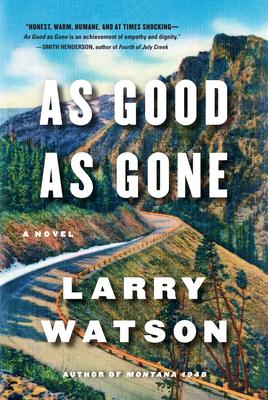"Honest, warm, humane, and at times shocking, As Good as Gone is an achievement of empathy and dignity." --Smith Henderson, author of Fourth of July Creek
Calvin Sidey is always ready to run, and it doesn't take much to set him in motion. As a young man, he ran from this block, from Gladstone, from Montana, from this country. From his family and the family business. He ran from sadness, and he ran from responsibility. If the gossip was true, he ran from the law. It's 1963, and Calvin Sidey, one of the last of the old cowboys, has long ago left his family to live a life of self-reliance out on the prairie. He's been a mostly absentee father and grandfather until his estranged son asks him to stay with his grandchildren, Ann and Will, for a week while he and his wife are away. So Calvin agrees to return to the small town where he once was a mythic figure, to the very home he once abandoned. But trouble soon comes to the door when a boy's attentions to seventeen-year-old Ann become increasingly aggressive and a group of reckless kids portend danger for eleven-year-old Will. Calvin knows only one way to solve problems: the Old West way, in which scores are settled and ultimatums are issued and your gun is always loaded. And though he has a powerful effect on those around him--from the widowed neighbor who has fallen under his spell to Ann and Will, who see him as the man who brings a sudden and violent order to their lives--in the changing culture of the 1960s, Calvin isn't just a relic; he's a wild card, a danger to himself and those who love him. In As Good as Gone, Larry Watson captures our longing for the Old West and its heroes, and he challenges our understanding of loyalty and justice. Both tough and tender, it is a stunning achievement.
